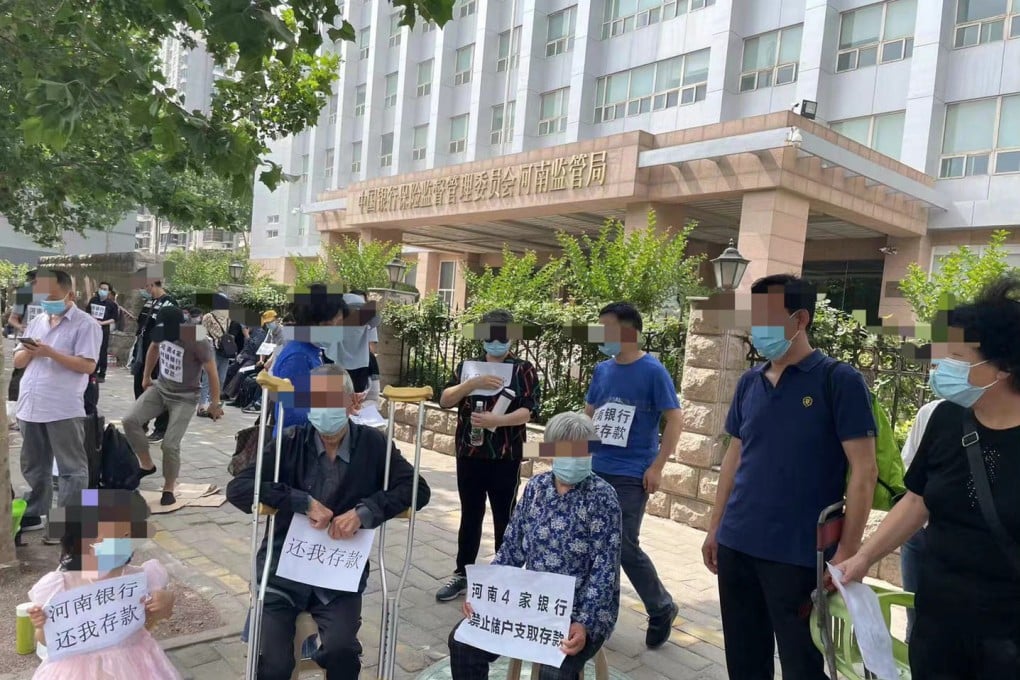China officials who abused health codes to stop bank protests punished
- At least one person has been sacked and four others disciplined after victims of a banking scandal were prevented from protesting
- More than 1,000 people found their codes had been turned red, tagging them as a health risk under zero-Covid rules

In a statement on Wednesday, the Zhengzhou Commission for Discipline Inspection said 1,317 people had been given the red codes, tagging them as a health risk under China’s strict zero-Covid policy.
The statement said the guilty officials had worked with a member of the local political and legal committee in charge of social stability and employees responsible for big data and health codes to make the change.
Of the total number of people affected, 446 had arrived and tried to enter the city, while 871 were prevented from travelling to Zhengzhou because they had already scanned the codes.
Earlier in June, deposits were frozen at four rural banks in Henan, as Chinese authorities launched an investigation into a local private investment firm, accused of colluding with bank employees to illicitly attract public funds via online platforms.
The account holders, some with millions of yuan in deposits at stake, travelled from across China to protest. The red health codes barred them from entering the city and they were removed by police and sent home.